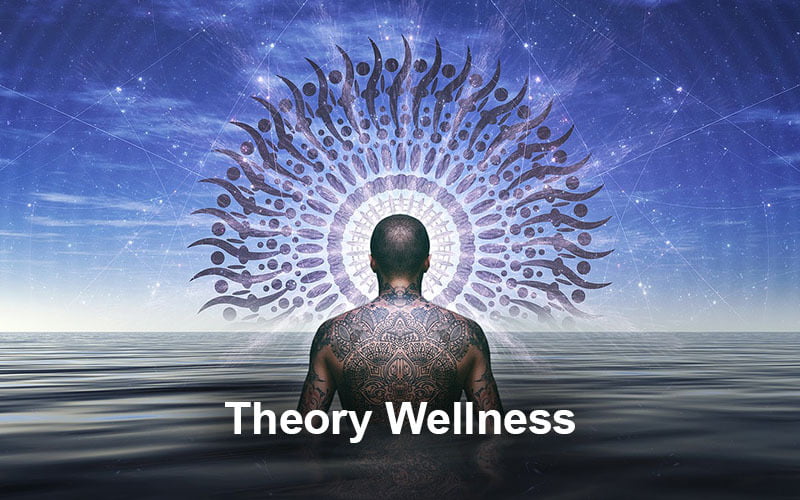
Welcome to an insightful journey through the world of theory wellness, a holistic approach to wellbeing that integrates mind, body, and spirit. In this article, we will explore the principles, practices, and benefits, offering you valuable insights based on extensive research and real-life experiences. From understanding the core concepts to its practical applications in daily life, we have you covered. Let’s embark on this enriching exploration to achieve better health, happiness, and balance.
Theory wellness is a comprehensive approach to achieving optimal health and wellbeing by addressing the interconnectedness of the mind, body, and spirit. It goes beyond merely treating symptoms and aims to discover and address the root causes of imbalances in our lives. This philosophy is rooted in the belief that all aspects of our being are interconnected, and a harmonious alignment of these elements leads to overall wellness.
In theory wellness, three fundamental pillars serve as the foundation for achieving holistic wellbeing:
Physical health is the cornerstone of theory wellness. It encompasses maintaining a balanced diet, engaging in regular physical activity, and getting adequate rest and sleep. By nurturing our bodies with nutritious food and regular exercise, we can enhance our vitality and boost our immune systems.
Mental and emotional wellbeing are essential aspects of theory wellness. Practices like mindfulness meditation, journaling, and therapy help us achieve mental clarity and emotional balance. By cultivating positive thought patterns, we can better cope with stress and maintain a healthy emotional state.
Spirituality forms the third pillar of theory wellness. It involves developing a connection with our inner selves and finding purpose and meaning in life. Engaging in activities like yoga, nature walks, or volunteering can foster spiritual growth and provide a sense of fulfillment.
Theory wellness offers a wide array of benefits that positively impact various aspects of our lives. Here are some of the advantages:
By prioritizing physical health through theory wellness practices, individuals often experience increased strength, flexibility, and overall energy levels. Regular exercise and balanced nutrition contribute to better physical functioning and a reduced risk of chronic illnesses.
Practicing theory wellness techniques like meditation and deep breathing can significantly reduce stress levels. By managing stress effectively, individuals experience improved mental wellbeing, reduced anxiety, and enhanced focus and concentration.
It encourages individuals to explore their emotions and develop emotional intelligence. This helps in cultivating emotional resilience, enabling them to cope better with life’s challenges and maintain emotional stability.
Through spiritual practices integrated into theory wellness, individuals gain a deeper understanding of themselves and their purpose in life. This newfound clarity provides a sense of fulfillment and a deeper connection with the world around them.
It is not just a philosophical concept; it has practical applications that can be integrated into daily life for tangible results. Here are some ways to apply its principles:
Incorporate mindful eating practices into your daily routine by savoring each bite, eating slowly, and being aware of the nutritional value of your food. Aim to consume a balanced diet rich in fruits, vegetables, whole grains, and lean proteins.
Set aside time for daily meditation and mindfulness exercises to calm your mind, reduce stress, and gain mental clarity. Practice deep breathing techniques to relax your body and mind.
Find physical activities that bring you joy and make them a regular part of your routine. Whether it’s dancing, hiking, or playing a sport, staying active can contribute to overall physical wellbeing.
Keep a journal to express your thoughts and emotions freely. This practice can help you gain insights into your feelings, resolve inner conflicts, and foster emotional healing.
Regularly practice gratitude by acknowledging and appreciating the positive aspects of your life. This can shift your focus towards optimism and create a positive mindset.
Spend time in nature to experience its calming effects and connect with the spiritual aspects of life. Engage in activities like yoga or meditation to deepen your spiritual connection.
A: It is based on three key principles: physical health and vitality, mental clarity and emotional balance, and spiritual connection and fulfillment.
A: While traditional healthcare focuses on treating specific symptoms and diseases, theory wellness addresses the root causes of imbalances and emphasizes preventive measures and holistic approaches.
A: Yes, this practices can be adapted to fit busy schedules. Even small changes, like incorporating mindfulness during daily activities, can have significant benefits.
A: Yes, many practices, such as meditation and yoga, have been extensively studied and proven to have positive effects on physical and mental wellbeing.
A: Yes, this techniques can complement traditional pain management approaches by addressing the mental and emotional aspects of chronic pain.
Theory wellness offers a holistic approach to wellbeing, encompassing physical health, mental clarity, emotional balance, and spiritual fulfillment. By integrating practices into our lives, we can achieve greater harmony, resilience, and happiness. Remember that it is a journey, and embracing its principles can lead to a more fulfilling and enriching life.
Recommended other topics: Divine Consciousness-The Secrets of Spiritual Awakening










© InfoDoot. All Rights Reserved.